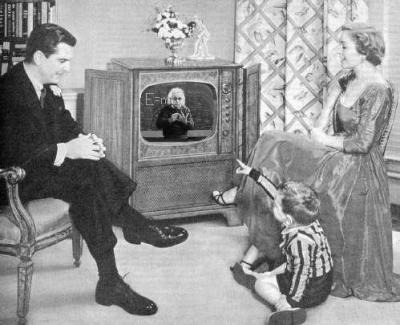
Seriously America. Let's all take a deep breath and read.
Issue Is Payback, Not Bailout (NY Times)
Take it away, David Leonhardt:
"The first thing to understand is that a bailout plan doesn’t have to cost anywhere close to $700 billion, so long as it’s designed well. The $700 billion number that you see everywhere is an estimate of how much the government would spend to buy deteriorating assets now held by banks. Eventually, the government will turn around and sell these assets, for a price almost certain to be greater than zero. So this $700 billion is very different from $700 billion spent on a war or on Medicare."
In other words, we'll spend money, but we'll get some of it back.
"Figuring out how much to pay for the assets is the first problem. The drop in house prices and rise in foreclosures have made it clear that these securities are worth considerably less than banks expected. But there is enormous uncertainty about how much less.
Based on the underlying fundamentals (like the current foreclosure rate and the one forecast for the future), many of the securities appear to be worth something on the order of 75 percent of their original value. But thanks to the fear now gripping the market — not necessarily an irrational fear, given that most forecasts have proven far too sunny over the last year — very, very few of those securities are trading hands. Among those that have, the sales price has been roughly 25 percent of the value."
This is a much better way of saying what I tried to explain in my last post. The Treasury (and more accurately, we, the taxpayers) doesn't want to overpay too much more than these assets are actually worth. If we do, we could very well end up losing a large chunk of that $700 billion when we sell these assets back to the market.
"It [The Government] clearly shouldn’t pay 75 cents on the dollar, or anything close to it. That would mean the Treasury Department — which, in the end, is really you and me — was assuming nearly all the risk. But it probably can’t pay 25 cents. That might fail to fix the credit markets, because it would do relatively little to improve financial firms’ balance sheets. Firms might then remain unwilling to lend money to businesses and households, which is the whole problem the bailout is meant to solve."
BUT, BUT, BUT! We can't pay the low price either, because no matter what these assets are worth, if we pay too little, it might not be enough of a cash-kick-start to get the markets going and banks lending and borrowing again.
"The most obvious solution is to pay more than 25 cents on the dollar and then demand something in return for the premium — namely, a stake in any firm that participates in the bailout. Congressional Democrats have been pushing for such a provision this week, and it’s one of the most important things they have done.
The government would then be accomplishing three things at once. First, it would take possession of the bad assets now causing a panic on Wall Street. Second, it would inject cash into the financial system and help shore up firms’ balance sheets (which some economists think is actually a bigger problem than the bad assets). And, third, it would go a long way toward minimizing the ultimate cost to taxpayers.
Why? The more that the government overpays for the assets, the larger the subsidy it’s providing to Wall Street — and the more it is pushing up the share prices of Wall Street firms. As Senator Jack Reed, Democrat of Rhode Island, notes, the equity stakes allow the government to recapture some of the subsidy down the road. It’s a self-correcting mechanism."
In other words, if this works, we spend cash, and then down the road, we make some of it back. All $700 billion? Who knows!? But this isn't money thrown down the drain. If we pay enough for these assets to get the economy flowing, but not so much that we won't get a healthy return when we decide to sell, this plan really does become a Payback, not a Bailout.
Now it's time to tell your friends and family. We need to understand this. And then we need to tell our elected officials to get off their rears and make it happen. And hey Obama. Hey McCain. Why you don't you try leading for once? Right now, this hand-ringing, card-holding, who can be more mysterious BS just isn't working for me. Come right and out either fully support this plan or reject it. With words like, "Hey, maybe it's not perfect, but we need this America!" Or, "This a bad idea, America. We gotta come up with something entirely different."
Or just cancel a debate. I know you don't want to embarrass yourself by speaking about economics, Johnny McCain. But this isn't the right way to go.
Or just cancel a debate. I know you don't want to embarrass yourself by speaking about economics, Johnny McCain. But this isn't the right way to go.




No comments:
Post a Comment